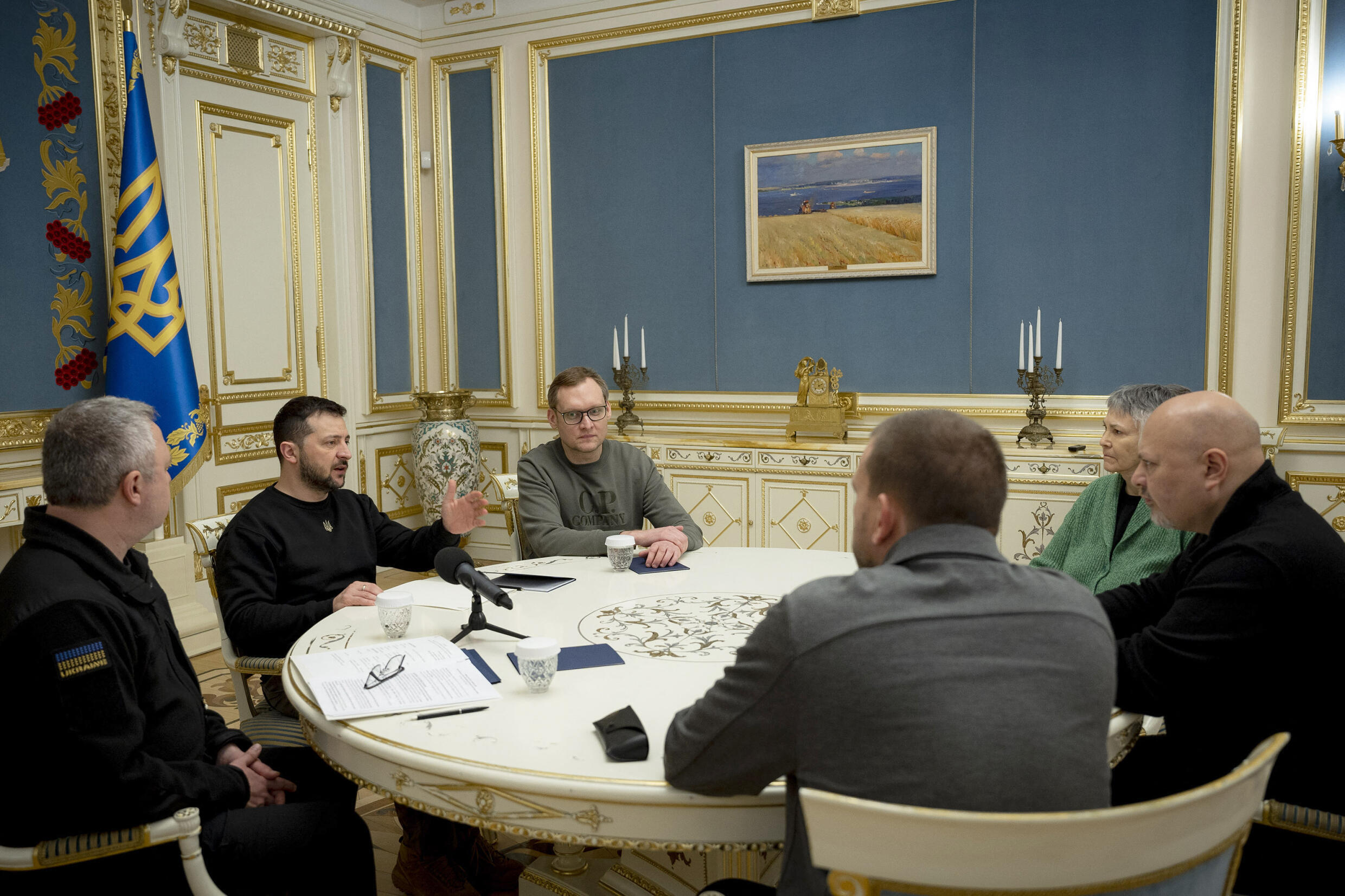First modification:
The prosecutor of the International Criminal Court (ICC), Karim Khan, met with the Ukrainian president, Volodimir Zelenski, to initiate the investigation of Russian attacks on the electrical infrastructure, which would directly affect the civilian population of the country. “The Court and the prosecutor will undoubtedly play a historic role in the prosecution of Russian criminals,” said the Ukrainian president.
Different organizations that ensure the defense of Human Rights have reported more than 70,000 possible violations of International Humanitarian Law on Ukrainian territory. The country’s authorities have denounced torture, executions, forced deportations and massive abuses in territories occupied by the Russian army.
“We will dismantle this entire Russian genocidal system, from the gears to the architects, and we will bring them to legal verdicts…”, exclaimed Volodimir Zelensky in a conference after his meeting with Khan.
The ICC has as legal bases the Rome Statute and the Geneva Convention, the latter stipulates that the parties involved in a war have the responsibility to distinguish between “civilian assets and military objectives.”
Actors who do not respect these guidelines would be committing war crimes under international law.

At present, neither Russia nor Ukraine are part of the Rome Statute, so a direct trial of the alleged perpetrators on both sides would not be possible. That is why President Zelenski also calls for the creation of a Special Court to initiate investigation and trial processes for irregularities in the war.
“Overall, we clearly see a pattern, I think, in terms of the number, scale and breadth of attacks against Ukraine’s power grids and we need to look at why it’s happening – are they legitimate targets or not?” Khan said.
The Russian attacks on electrical infrastructure left thousands of Ukrainians without a fundamental service for the daily dynamics in the country, especially in the winter season when heating is a basic need for the region.

“Ukraine survived the most difficult winter in its history”
Ukrainian Foreign Minister Dmytro Kuleba celebrated the start of spring in Ukraine, adding that “Ukraine survived the most difficult winter in its history,” referring to Russian attacks on power plants in the country.
The Ukrainian official also recognized the efforts of the members of the European Union to help their country and show solidarity, by spending the winter without buying gas from Russia and seeking alternatives to ensure the well-being of their population in the face of low temperatures.
“The European Union has also won, and contrary to Moscow’s taunts, it has not frozen without Russian gas,” Kuleba stressed in a Facebook post.
However, not all of Europe supports the Zelensky government. Belarus is one of the nations that have expressed public support for Vladimir Putin’s position on the conflict.
The president, Alexander Lukashenko, is a close ally of Putin, although he has also been in favor of the new peace plan presented by China to end the conflict peacefully.
Lukashenko’s visit to China casts doubt on his intentions to mediate in the conflict
The Belarusian president landed in Beijing on February 28 for a three-day official visit to the Asian country. During his stay, he is expected to meet with his Chinese counterpart, Xi Jinping, to discuss the document presented on February 24 that seeks a political solution to the war in Ukraine.

During an interview with a Chinese media, Lukashenko declared that the proposal is “a new and original step that would have a far-reaching impact” on the achievement of peace.
In the midst of doubts in the West about the neutrality of Beijing’s intentions, the visit of the President of Belarus could further fuel the questioning of some voices who point out that the Asian giant has already taken Moscow’s side in the war.






![[Img #74676]](https://thelatestnews.world/wp-content/uploads/2024/12/Laser-artificial-neuron-150x150.jpg)





